Europe's Nato allies look to Trump as Russia 'tests resolve'
- Published
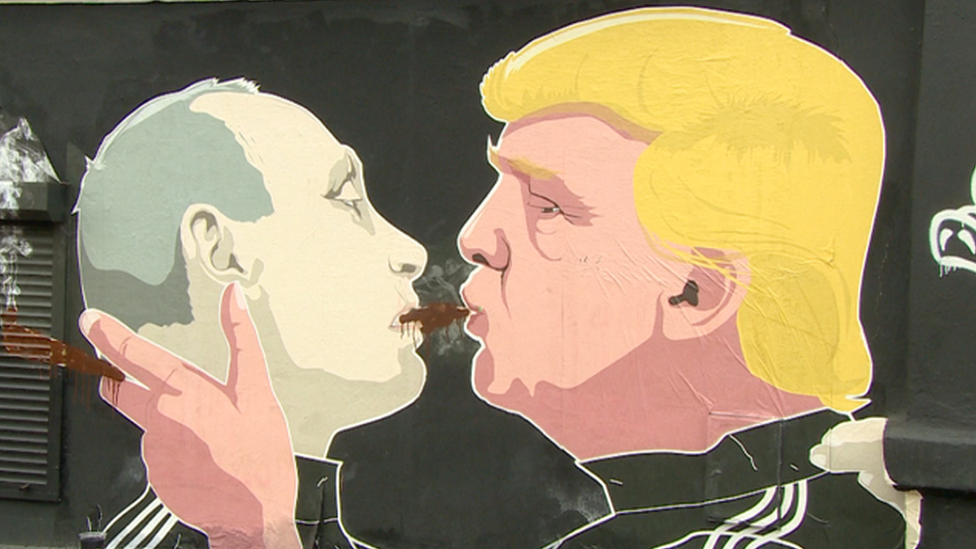
An unflattering mural in Vilnius, Lithuania, illustrates local fears
Nato officials follow Donald Trump avidly on Twitter.
They're still hoping he'll tweet some form of public confirmation that the United States under his presidency will be just as firmly committed to fighting to defend any member state of the alliance as all his predecessors in the White House during Nato's 67 years of existence.
It matters because on the campaign trail Mr Trump sowed real seeds of doubt.
He questioned the alliance's continuing usefulness, and expressed doubt about his willingness to defend Europe fully while some European members fail to pay their way and meet the collective commitment to spend 2% of GDP on defence.
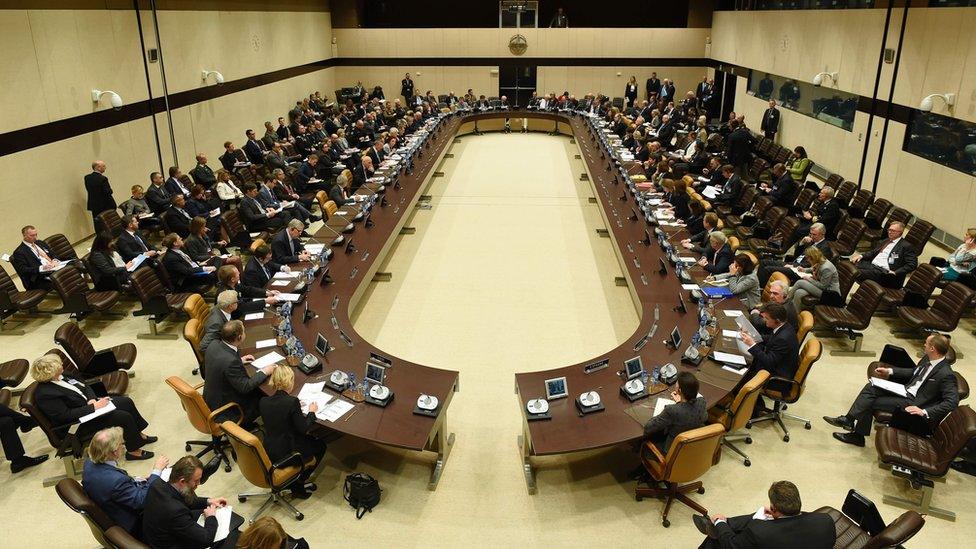
At Nato's meeting in Brussels, Donald Trump and Vladimir Putin were on the minds of many
As Nato foreign ministers have been meeting at the alliance headquarters in Brussels, the signs are that the president-elect is moving back towards a conventional US stance, without any "ifs or buts".
Nato Secretary-General Jens Stoltenberg says he's had those private assurances from Mr Trump - and it is hard to imagine a Trump administration which includes former generals being anti-Nato.
Russia resurgent
The trouble is that any lingering doubt makes governments nervous, in the face of a Russia they see as resurgent and potentially very dangerous.
President Putin says it's Nato that is aggressive and expansionist, pointing to the process already underway to reinforce the countries which feel most vulnerable - including the three Baltic states and Poland.
So, when I talked at length with Estonian Foreign Minister Sven Mikser he stressed that Estonia was one of five Nato countries meeting the 2% spending obligation, and that the arrival early next year in his country of additional forces would "deliver a very clear message to Putin and to people around him: it's not worthwhile making any provocations".
Estonia's Foreign Minister Sven Mikser says Russia is "testing" his country's defences
"I think they are constantly testing not only Estonia's defences, but actually the alliance's resolve and unity," he said.
"That's what we need to keep and maintain. And not only that - we also need to demonstrate it, in order to give the right message. It's not only important that we know that the allies are ready to defend us - it's important that Putin knows that."
Ever-closer union
At a meeting in Brussels, Nato formalised - and is now celebrating - its new agreement to work more closely with the European Union on defence.
"Collaboration not competition" is the message, with a strong subtext that the United States, as the overwhelming Nato superpower, should draw comfort from the commitment by Europe to spend more and do more in its own defence, both within and alongside the alliance, without relying quite so heavily on Uncle Sam - or in this case, Uncle Donald.
But worries inside Nato governments persist, and not just about America's direction of travel - but also Europe's.
Poland is another of Nato's front-line states. Travelling there in the early 1990s, just after the end of the Cold War, I was struck by the brutal simplicity of one businessman I met on a train.
Looking back at his country's suffering under the Nazis, and then under the Soviet Union, he said he wanted to join Nato and the EU because "we fear Germany, but we fear Russia more".
Now Poland's Foreign Minister Witold Waszczykowski underlines his hope that President-elect Trump is moving towards the mainstream Republican position of absolute commitment to Nato - but sounds a note of warning about the fragility of the transitional phase.
Poland's foreign minister says Russia has an opportunity to use "an aggressive posture"
"We have a transition period right now in the country which is our most important ally... the United States. Most European countries are preoccupied with domestic issues.
"So it's kind of a vacuum situation for the next several months... that's an opportunity for [Russian President Vladimir Putin] to use this situation and to go forward with an aggressive posture."
During this Nato meeting, John Kerry used his farewell appearance as Secretary of State to reassure America's allies they could look forward with confidence to continuity from Donald Trump, not a lurch into military isolationism.
The evidence may point that way, but some Nato governments won't feel entirely easy until they've heard it loud and clear from the next president himself - at or before the Nato summit he'll attend here in Brussels after a few months in office.
- Published9 November 2016
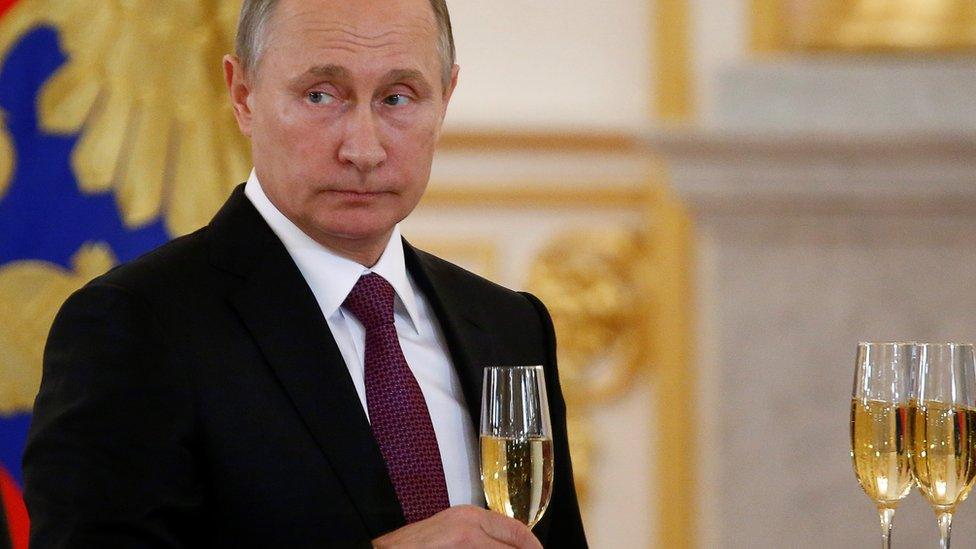
- Published14 November 2016
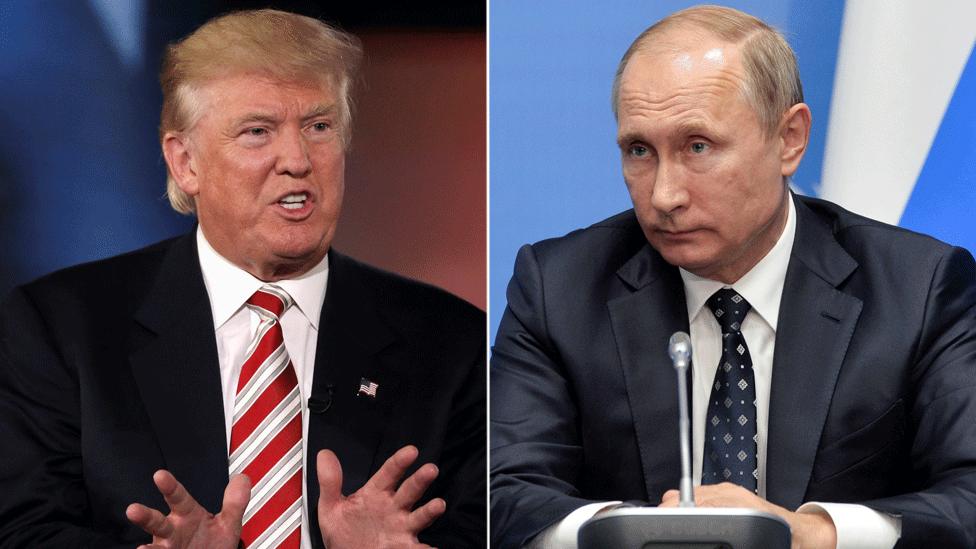
- Published18 November 2016
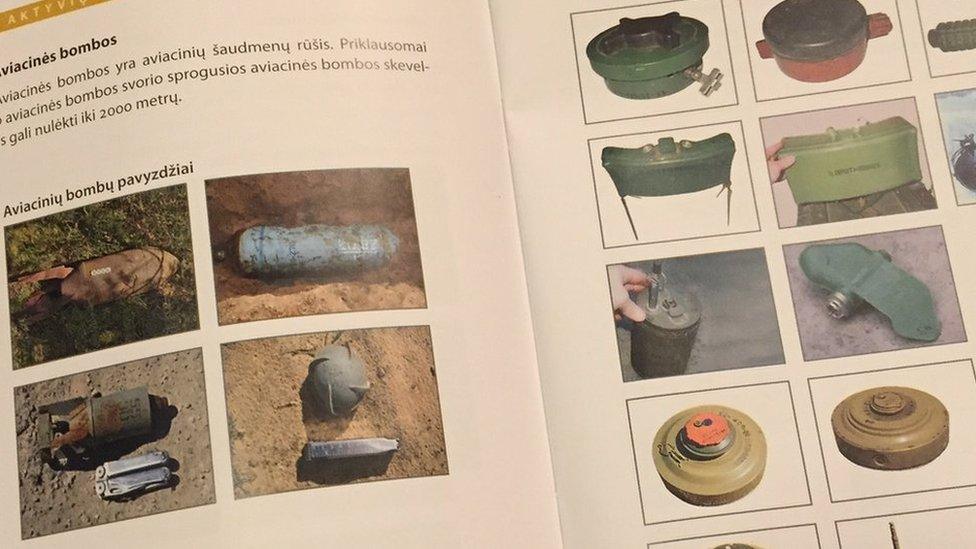
- Published24 November 2016
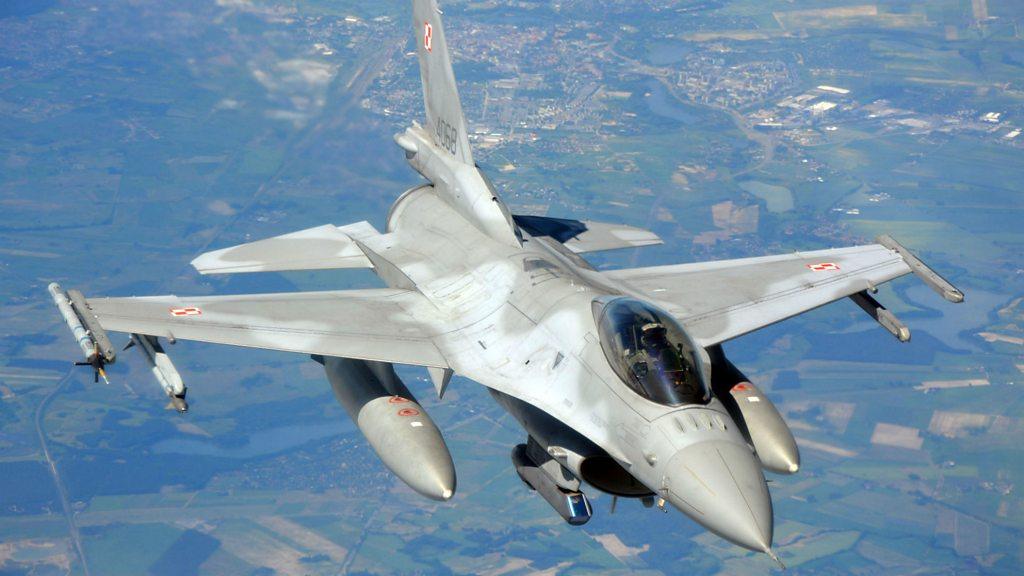
- Published13 November 2016
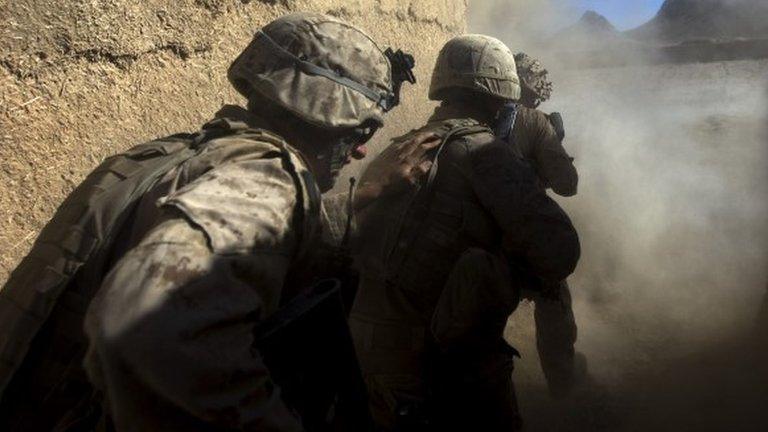
- Published18 November 2016
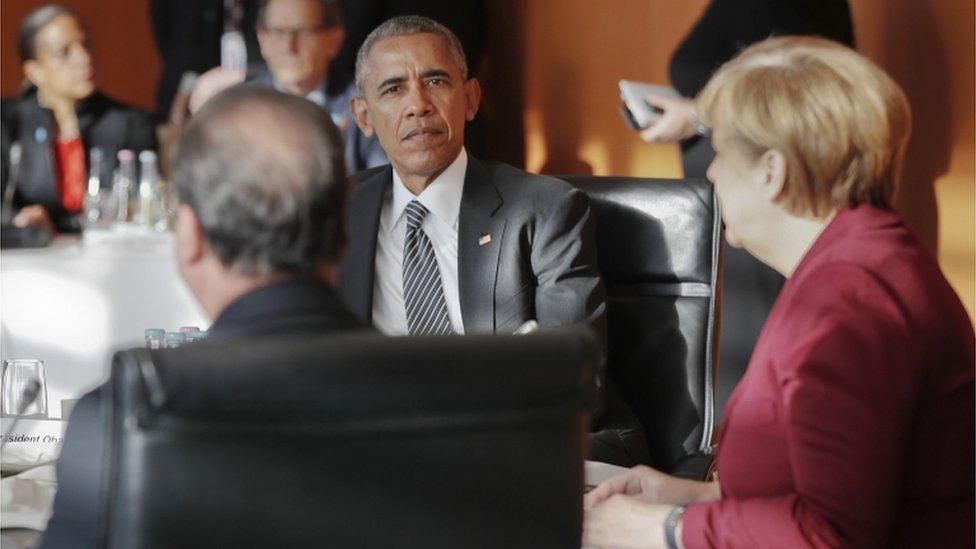
- Published17 November 2016
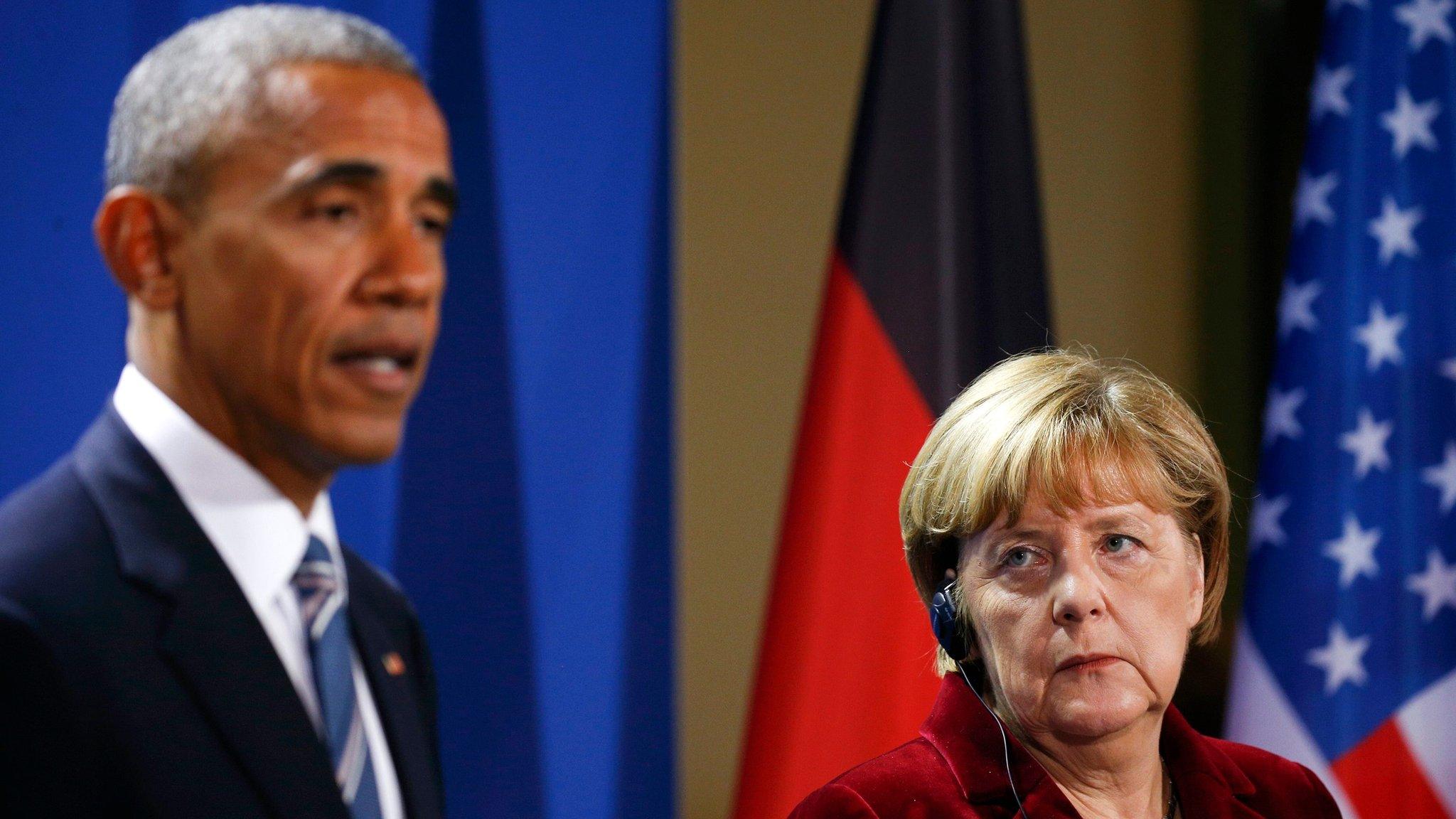
- Published27 October 2016